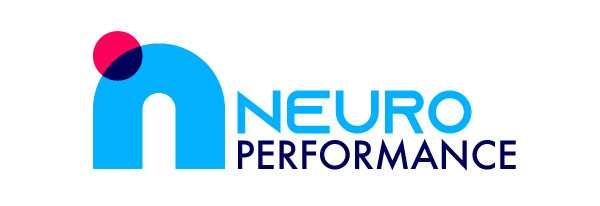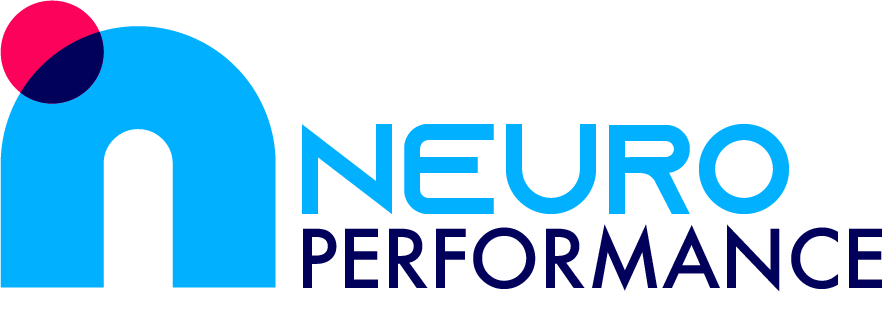21 Sep SUPPLEMENTS FOR BRAIN HEALTH: ATTENTION, FOCUS, AND MEMORY

Attention is a vital component of our day to day functioning.
When impacted, such as in ADHD, it can lead to significant consequences in our lives.
Is your ability to concentrate and stay focused on your job or project seemingly getting worse? You are not alone. Many people are increasingly complaining that they are finding it hard to sustain attention and keep their focus on their job, in the boardroom, during a sporting performance, completing schooling, or simply during conversations with friends and family.
Attention refers to the mental ability of an individual to focus or narrow their awareness on selected stimuli from the external environment or on internal moods, thoughts, memories, and physical sensations that are behaviourally relevant from those that are behaviourally irrelevant (Raz, 2004).
Attention is a vital component of our day to day functioning and when impacted, it can lead to significant consequences in our lives. Now more than ever, this seems to be an increasing problem with the impact Covid has had on our stress levels and sleep. Developing evidence is beginning to show the significant impacts of Covid on brain functioning, irrespective of whether you had symptoms or not, suggesting that the negative impacts may last longer (Covid Long) than the virus itself and may even increase the risk of Alzheimer’s disease.
Your brain may well be wired and set up to excel intellectually but if your ability to focus and pay attention is compromised, then realising that potential becomes far more challenging and likely improbable. And sadly, the more you realise your attention is failing you, the worse it gets as you stress and worry about the impact it will have on your performance and if others will notice as you increasingly make more mistakes. This is the commonly described experience of those diagnosed with ADHD.
Factors that Impact Attention
Attention is commonly reported to be impacted by things like anxiety, depressed mood, fatigue, stress and is a common symptom feature in most mental health conditions including the well known attention deficit hyperactivity disorder (ADHD), age-related cognitive decline, Alzheimer’s dementia and is also commonly found in viral infections of all sorts. Having read widely and considered a large volume of information on all these diseases and reports of poor focus/attention and memory, I have come to conclude that the main driver behind all these struggles is ‘stress’. Now understanding what I mean by ‘stress’ is important as I am not just talking about when people say, ‘I’m stressed at work’, although this is important. I am talking more about ‘oxidative stress’ that results from unrelenting ‘demand’ on the person’s physiology and resources, both from within the body and from the environment, to the point the body can no longer keep up with the build-up of by-products from cellular stress known as free radicals, which leads to inflammation and more specifically, neuro-inflammation.
Our bodies are stressed from psychological worry and constant, unrelenting demand on our fight and flight system coming at us from all angles: work, kids, finances; news 24 hours a day of disasters, murders, accidents, Covid; ingesting chlorine in our water, poisonous sprays in our food, chemicals in our skin and hair products, and the list goes on and on. All of these ‘stress’ the body and then, to make matters worse, we sleep less than 7 hours a night and impair the natural detox process even further. All of this leads to overwhelming ‘toxic’ stress overload. When multi-systems are impacted during the developmental period then conditions like ADHD develop.

Inflammation Has Been Linked to a Multitude of Conditions
The gut-brain connection is now well established and most readers will be familiar with leaky gut/dysbiosis and the role this plays in the inflammatory process.
Recent research has begun to discuss the role of the blood-brain barrier (BBB) in some conditions such as Alzheimer’s disease, having been found to be ‘leaky’ in much the same way as we see in the gut. It would appear that our lifestyles, the constant bombardment of stress on our lives coming from all directions is leading to the degradation of these two very important barriers, increasingly allowing what should not go through, into our body and into our brain. No wonder we are experiencing increasing levels of mental health issues, brain fog, Alzheimer’s, autism, and all forms of autoimmune disease.
Improving Attention and Focus
The important question on everyone’s mind is, ‘Can I improve or treat these neuro-inflammatory conditions?’ And the simple answer is that you certainly can do much to significantly improve or even address many if not most. It appears from the literature in the field of ‘peak performance’, that even for those without diagnosed conditions, that attention, focus, memory and performance can be improved and provide that competitive edge that so many sports people and top executives are looking for, implementing, and seeing dramatic results. Emerging evidence in the field of Alzheimer’s is also beginning to show the possibility of delaying the onset of this awful condition. At the very least, preventing it despite possible genetic links is appearing increasingly possible.
If you are serious about improving your attention and focus, then improving your brain health is a must and the only way to achieve this goal. If you give your brain the attention and love it needs and deserves, your brain will begin to function the way it was designed to and then everything changes.
Although I am passionate about neuromodulation and the significant advances being made in the fields of neurostimulation, I will leave that for another article, and consider over a series of upcoming posts, strategies you can consider employing now to address brain inflammation. I have come to see within my own clinic that even neurotherapies (such as neurofeedback) that have proven track records for addressing ADHD don’t seem to work or last in effectiveness unless the foundational cause of most neurological issues (inflammation) is addressed.
The key areas within my N.E.U.R.O program, that should all be worked on within a complex systems mindset, include Nutritional Supplementation and Food, Exercise (or more specifically, daily movement), Unwinding (stress management/disconnecting daily) Restorative Sleep and Optimising Brain Plasticity, with targeted brain strengthening exercises like neurofeedback, neurogames, reading, dancing or learning a new language.
Many of my patients are seeking some immediate help and need immediate support for motivation and attention, and so targeted supplements will often be the first line of support to help underpin being able to implement all the other vital lifestyle changes.

Supplements for Brain Health and Function
Supplementing without working on all the other lifestyle changes mentioned above is going to be a waste of time and money in the long run. However, beginning here may help with motivation and temporarily give the brain a lift – enough to help with motivation to make all the vital changes for lasting success.
The risk of reviewing supplements is that the information can become overwhelming and often lead to not taking action at all. So my advice is get professional support, make sure to consult you medical professional as needed and do not take the following as advice from me. This is purely to get you educated and started.
It is simply not true that supplements lack evidence. Many do have extensive science and research findings to back them up and should not be dismissed so readily. They have the capacity and evidence to support boosting focus and concentration, memory and recall and can reduce and even resolve depression and anxiety and ADHD.
It is also not true that supplements are safe. Yes, certainly, they have better safety profiles than most, if not all medicines, but if not balanced and matched to address underlying drivers, supplements can make matters worse. For example, L-Tyrosine is a commonly used amino acid that the body uses to convert into dopamine. Dopamine is one of the neurotransmitters that appears to play a role in supporting the attention networks and have been found to be deficient in ADHD. However, even though supplementing with this alone can have significant impacts on attention, ongoing use can lead to a change for the negative in other neurotransmitters and end up causing other concerns with mood or sleep. This is why it is important to understand balance when supplementing. Some vitamins, like most of the B-group vitamins, are used by the body and brain and the excess excreted in your urine, but other supplements/nootropics (fancy word for supplements for brain health) can build up over time.
High doses are not necessarily the way to go. Many researchers use high doses in an attempt to elicit a response in a shorter window of time. If one is seeking to take these over a much longer period of time, then lower dosages may be better. Yes, it may take a little longer to notice the impact, but at least it may be longer-lasting.
Avoiding tolerance is also important to consider. Ritalin, for example, often requires increasing dosages when used daily over time, to achieve the same effect as the body and brain appears to habituate to the drug-meaning your body gets used to the drug needing more to achieve the same effect. This is seen in many medications, melatonin supplementation (when in doses higher than 3mg) and may be seen with supplements too. For this reason, similar to the advice now given by many medical professionals on stimulant use ( have days off during the week), giving yourself a break from supplements may be the best way to go as well as ensuring the balance in your supplement stack to help compensate for the tolerance effect.
More importantly, supplements, herbs and nootropics may interact with other medications and should never be blindly taken without proper supervision from a well trained nutritional medicine practitioner or GP.
Synergistic Use of Supplements for Brain Health
In the movie Limitless, Bradley Cooper’s character took just one pill, called NZT-48, and instantly was able to magically recall with perfection, and access vast amounts of information – making him a super processing machine. Consensus is that this is not possible and never will be, but advances in the peptide and peak performance sector is beginning to show that combinations of various supplements, peptides and lifestyle changes, tailored to the individual’s specific genetic needs can significantly improve performance on nearly all metrics. The synergistic effects of combined supplements are important (and beyond the scope of this article to explore).
These are some of the best supplements for brain health that I have come across that may work well synergistically, and seem to be of some real assistance when it comes to the brain, attention, focus and memory.
PYCNOGENOL® MARITIME PINE BARK EXTRACT
Pycnogenol® is a standardised exctract of the French maritime pine bark. Research began way back in 1965, with more than 370 clinical studies since conducted. It is a powerful antioxidant that promotes the delivery of blood to the brain and protects cells from oxidative stress membrane damage, DNA damage and inflammation. It also appears to prevent decr;eases in dopamine and norepinephrine – all shown to be the main driving force in conditions like ADHD and Alzheimer’s disease. Intensive clinical research has established its benefits for attention and other higher brain functions in kids as well as adults and is established as a viable treatment for ADHD symptoms in children.
CHOLINE (CITICOLINE)
Choline is essential in the formation of acetylcholine, a neurotransmitter that plays an important role in mental function and cell membrane function. Choline enhances focus, supports healthy memory, and promotes calm. It is present in every cell in your body. It is regarded as an essential nutrient, as your body uses it faster than it can produce it and in fact, without it, we could not move, think, sleep or function. Research from hundreds of studies has shown that supplementing with a form of choline called CDP-choline or citicoline, will boost cognition, increase brain energy and speed up formation of cell membranes, boost production of acetylcholine, increase blood flow to the brain, offset harmful effects of stroke, improve memory and learning and boost cognitive performance and memory in Alzheimer’s.
SAGE (SALVIA)
Salvia plants and their constituents can influence several biological mechanisms associated with cognition including their effects on amyloid-b, cholinergic activity, Neurotrophins, oxidative stress, inflammation and anxiolytic/antidepressant behaviours. The cognitive enhancing powers of the plant have been investigated in several human trials with one trial in particular showing marked improvement in attention and memory in healthy adults after a single dose. Other studies show preliminary evidence for use in Alzheimers disease. Memory impairment is a central feature in ADHD, partly due to impaired attention networks but also because the executive functions in the frontal lobes are impacted and the frontal lobes, among other areas, play central role in memory.
L-CARNITINE
L-Carnitine or Acetyl-L-carnitine (ALC or ALCAR) is an amino acid that is naturally produced in the body and is important for energy production. It assists in the proper functioning of genes, enzymes and neurotransmitters. L-Carnitine specifically has benefits for providing energy for the mitochondria of your cells in your body. Although it does not cross into the brain readily like the Acetyl forms does (which has remarkable evidence in its own right to benefit the brain), L-Carnitine is often favored by athletes for its fat metabolizing benefits. Many conditions from Depression to ADHD have been found to have underlying deficits in their mitochondria. Supporting the brain should never only ever be about chemicals which cross into the brain as general brain health and function is supported by the whole body. Optimising energy within the body will support ones ability to persist and sustain activity like work or athletic performance.
UBIQUINOL(CO-Enzyme Q10)
Mitochondria as noted above, play a critical role in our quality of life and longevity. They are the battery of every cell. Recent evidence now supports that there are free flowing mitochondria in our blood. The human brain has a much higher concentration of these little powerplants. Mitochondrial dysfunction has been implicated on the development of many disorders such as autism and ADHD. Several studies have shown improvement in AD/HD for example, with dietary supplementation, which mostly act on mitochondria. COQ10, or the more Bio-available form called Ubiquinol, is in the mitochondria and plays a significant role in supporting energy production in the cell and protecting the cell from oxidative damage. The bottom-line, much like with L-Carnitine, supplementing with Ubiquinol helps fuel the ATP produced in the mitochondria in your brain cells thereby boosting energy, cognition, memory and recall. Athletes love CoQ10 as it supports oxygenation thereby allowing the to train for longer.
RHODIOLA ROSEA EXTRACT
Rhodiola is one of the best studied and most potent adaptogens (helping our bodies and brain adapt and respond better to stress). Rhodiola is fast-acting and has been shown to fight fatigue, support a positive mood, support neurogenesis and improve physical and mental alertness and performance. It also helps increase the availability of energy during the day, helping to fight fatigue and promoting restful sleep. There are over 180 studies on this plant supplement which has been shown to be as effective in treating ADHD, depression and anxiety as the medications commonly used. It is highly effective in protecting neurons from stress related damage (inflammation). It also appears to influence neurotransmitters like serotonin, norepinephrine and beta-endorphins and is commonly used to support attention and focus in ADHD and the mood related symptoms that comorbidly exist such as depression and anxiety.
L-TYROSINE
Tyrosine (L-tyrosine) is an amino acid that is required for the production of the neurotransmitters dopamine, epinephrine, and norepinephrine. The thyroid gland needs tyrosine to make the hormone thyroxine, and the skin needs it to make melanin. Having sufficient quantities of tyrosine in the brain promotes mental clarity in dealing with stress and enhances working memory, executive functions including focus and concentration, mood, anxiety and lessens ADHD symptoms. Studies have shown benefits, but this is not always lasting, so it is important to keep in mind that tolerance can be reached with high doses of this amino acid. One study by Hinz et al. in 2011 where 85 young people with ADHD were treated for a period of 8-10 weeks found treatment to be equal in efficacy to stimulant medications.
CORDYCEPS
Cordyceps is a Chinese mushroom that has been widely studied and is increasingly attracting attention for its broad health benefits. Cordyceps first became popular in the western world when the coach of the record breaking Chinese female runners credited it with the teams extraordinary success. Many researchers believe this mushroom to be one of the most powerful performance and longevity promoting herbs. Cordyceps has been shown to support blood sugar, work as an adaptogen by helping to produce and balance cortisol and other stress hormones and most importantly improves brain function. It has been found to lower brain related inflammation, improve BDNF (Brain derived neurotrophic factor) and new nerve cell formation. It improves neurotransmitter status, reduces brain degeneration and improves memory and cognitive function.
It is important to keep in mind that many of these are small studies but statistically strong results. However, when it comes to nutritional medicine research, the lack of any real financial gain limits the research investment and the size of research desired may never come despite the promising initial results being observed.
A final note is to always ensure that you discuss your use of any supplements with a trained clinician and that you particularly seek this advice if you are taking any medications, are pregnant or breastfeeding and remember to cycle them by taking breaks every few weeks.



